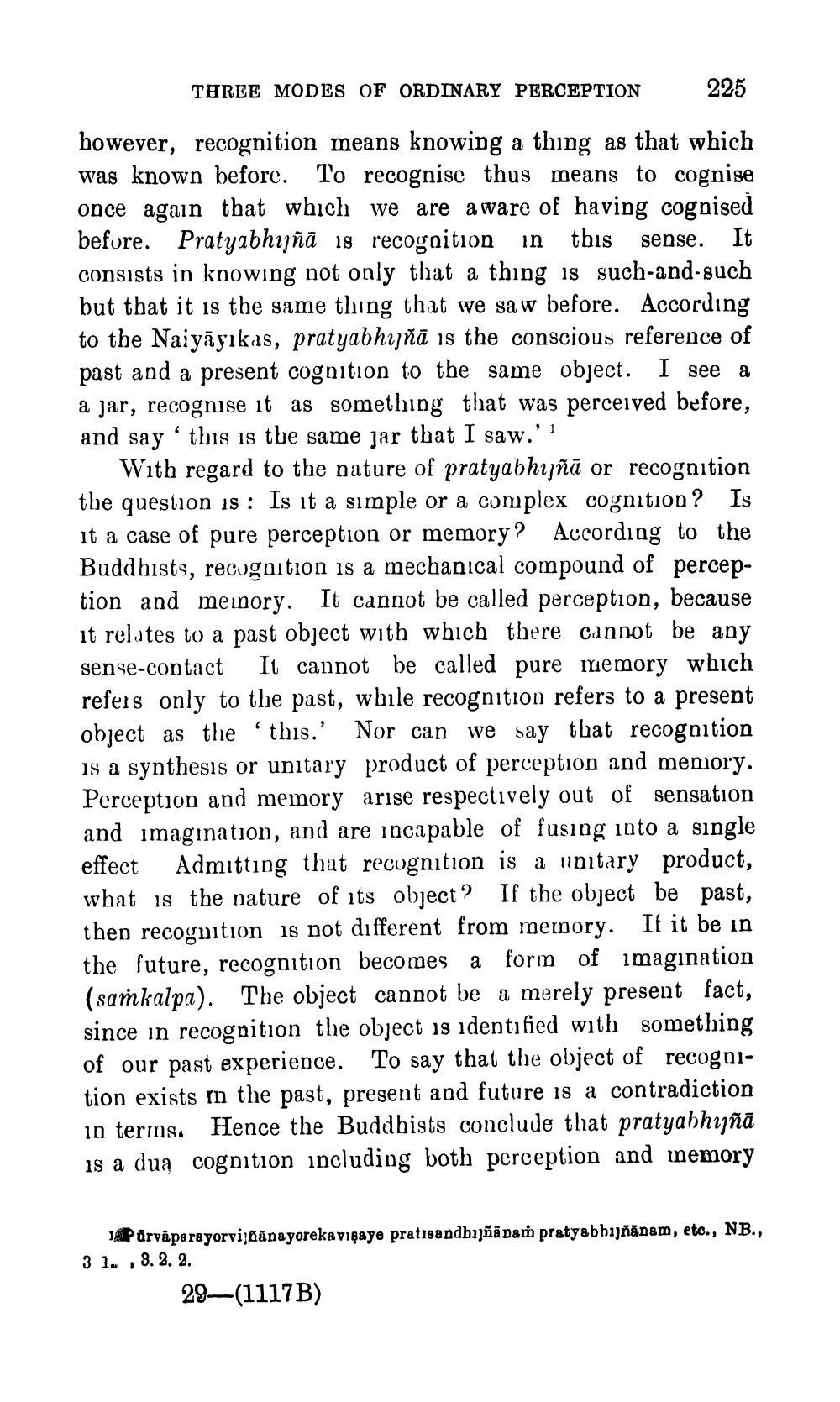________________
THREE MODES OF ORDINARY PERCEPTION
225
bowever, recognition means knowing a thing as that which was known before. To recognise thus means to cognise once again that which we are aware of having cognised before. Pratyabhijñā 18 recognition in this sense. It consists in knowing not only that a thing is such-and-such but that it is the same thing that we saw before. According to the Naiyāyikas, pratyabhujñā is the conscious reference of past and a present cognition to the same object. I see a a jar, recognise it as something that was perceived before, and say this is the same jar that I saw.' 1
With regard to the nature of pratyabhijñā or recognition the question is: Is it a simple or a complex cognition? Is it a case of pure perception or memory? According to the Buddhists, recognition is a mechanical compound of perception and menory. It cannot be called perception, because it relates to a past object with which there cannot be any sense-contact It cannot be called pure memory which refers only to the past, while recognition refers to a present object as the 'this.' Nor can we say that recognition is a synthesis or unitary product of perception and memory. Perception and memory arise respectively out of sensation and imagination, and are incapable of fusing into a single effect Admitting that recognition is a unitary product, what is the nature of its object? If the object be past, then recognition is not different from memory. It it be in the future, recognition becomes a form of imagination (sankalpa). The object cannot be a merely present fact, since in recognition the object is identified with something of our past experience. To say that the object of recognition exists in the past, present and future is a contradiction in terms. Hence the Buddhists conclude that pratyabhijñā is a dua cognition including both perception and memory
THP örväparayor vijfānayorekavıgaye pratisandhujñādam pratyabhijñānam, etc., NB., 31., 8.2. 2.
29~(1117B)




